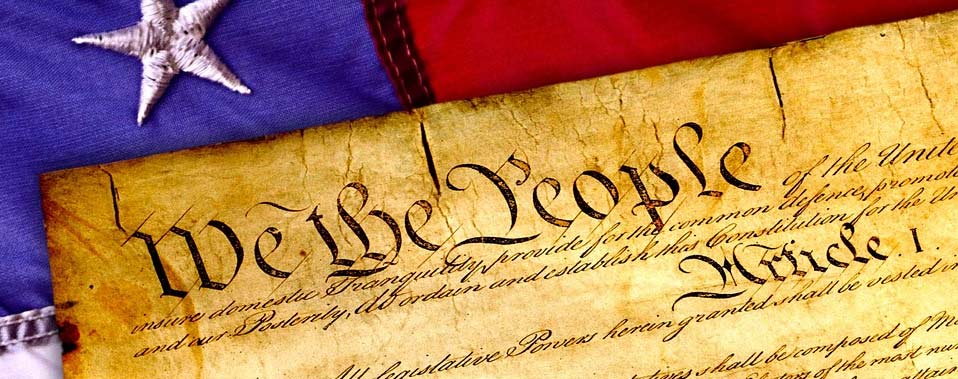The U.S. Supreme Court Addresses Important Issues Relevant to Criminal Defense
Why should you care about the United States Supreme Court? How does it help you if you face misdemeanor or felony charges?

Freedom of Speech and Religion
The United States Supreme Court, known as SCOTUS, has already agreed to hear 33 cases in its new term. However, when the justices return for the term, they will meet behind closed doors and account for the remainder of the cases for 2015.
One of the cases the Court will hear that will affect the “average American” is whether violent threats posted on social media could merit criminal charges. A Pennsylvania man posted violent messages, including death threats against his ex-wife, written like rap lyrics, but he says he never intended to act on those threats. The Supreme Court has already weighed in on new technology, including GPS and cell phones, and it is strongly inclined to protect the First Amendment and Free speech in modern media and popular culture. This case is set for hearing on December 1.
Another case involves a Muslim prisoner demanding the right to have a beard of a half-inch length. This is allowed in 40 states, but Arkansas prison authorities worry the beards could be used to hide drugs, weapons, or contraband.
Why Should Someone Care About the United States Supreme Court’s Rulings?
Rulings from the Supreme Court profoundly influence the landscape of criminal defense in the United States. These decisions shape the legal framework within which defense attorneys operate, directly impacting the strategies used in defending clients against felony and misdemeanor charges. At LEWIS & DICKSTEIN, P.L.L.C., a leading Michigan criminal defense law firm, we leverage these landmark rulings to provide aggressive, effective, and passionate defense for our clients, ensuring their rights are protected at every turn.
The Ripple Effect of Supreme Court Decisions
Supreme Court rulings serve as binding precedents for all other courts in the country, including Michigan’s state and federal courts. These decisions can redefine the interpretation of constitutional rights, alter law enforcement practices, and shift the dynamics of criminal defense strategies. For defendants facing charges, the implications are significant, influencing everything from the admissibility of evidence to the severity of sentencing.
Shaping Legal Standards and Procedures
Many Supreme Court rulings have directly affected the rights of those accused of crimes, setting standards for due process, search and seizure, self-incrimination, and the right to counsel. For instance, decisions such as Miranda v. Arizona have become synonymous with criminal rights, mandating that individuals be informed of their rights to silence and legal representation upon arrest. These rulings ensure that our clients are treated fairly under the law and that any evidence obtained in violation of these principles is challenged.
Impact on Defense Strategies
Understanding and applying Supreme Court precedents is crucial for crafting effective defense strategies. At LEWIS & DICKSTEIN, P.L.L.C., our attorneys are experts in analyzing and utilizing these rulings to benefit our clients. Whether it’s arguing for the exclusion of unlawfully obtained evidence or ensuring a client’s right to a speedy trial is upheld, Supreme Court decisions provide the legal foundation for our defense tactics.
Evolving Legal Interpretations
The Supreme Court’s interpretations of the Constitution can evolve, reflecting changes in societal values, technological advancements, and legal philosophies. These shifts can open new avenues for defense or require adjustments to existing strategies. Our firm stays at the forefront of legal scholarship and practice, ensuring we leverage the most current and favorable interpretations of the law to defend our clients.

The United States Supreme Court Will Address Separation of Powers
Two other important cases involve the balance of power between the legislative and executive branches of government. On November 3, the Court will hear a case relative to Jerusalem’s status, as it considers the constitutionality of a 2002 law that directs the State Department to give Israel as the country of birth in passports of Americans born in that city. The problem is that the international community, including the United States, does not recognize Israel’s sovereignty over Jerusalem.
On November 4, the Court will decide whether the government has the right to fire a federal air marshal for revealing information to the media. The issue is whether the federal whistleblower protections protect the fired agent, who showed that certain flights to Las Vegas would not have air marshals on board. The government believes that information puts the passengers on those flights at risk.
Lastly, on December 3, the Court will hear arguments relative to a pregnant woman’s alleged discrimination.
“Why do trial courts have to do what the United States Supreme Court says?”
Trial courts have to follow what the United States Supreme Court says because the Supreme Court is the highest in the country. It makes the final decisions on how laws and the Constitution are understood. When the Supreme Court decides something, it sets a rule that all other courts must follow. This ensures the laws are applied the same way everywhere in the United States, making the legal system fair and predictable. Essentially, it’s like the Supreme Court is the boss of all the other courts, and when it makes a decision, the other courts must follow it to keep everything consistent and fair.

Michigan Criminal Defense Attorney
When you are charged with a crime, it is essential that your lawyer has up-to-date knowledge of the criminal laws. The United States Supreme Court hears criminal cases in every term. That Court’s decision can dramatically change the course of criminal representation. These decisions can happen overnight; the first notice is on the evening news. If you face criminal charges and the possible loss of your freedom, it is essential that you have expert legal assistance. The attorneys at LEWIS & DICKSTEIN, P.L.L.C. are experts in criminal defense – that is all we do. Our lawyers stay current with criminal laws. Contact us for a free consultation today. We will take the time to talk with you, answer your questions, and work with you to develop a winning strategy!
Call us today at (248) 263-6800 for a free consultation or complete an online Request for Assistance Form. We will contact you promptly and find a way to help you.












